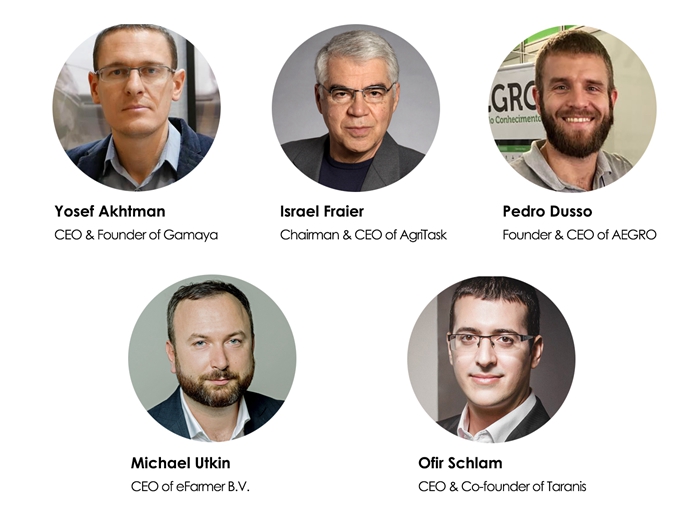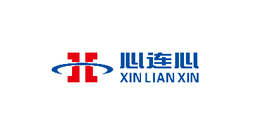Editor's Note: Nowadays, the traditional agriculture still remains a guarantee for human survival though it has thousands of years of history. However, it is also an industry with low rate of adoption of new technologies due to its complexity, broad areas involved and the relatively low cognition level of farmers, and the transformation of it is slow and full of obstacles.
The recent surge in capital investment in the agricultural sector has created many Agtech startups that use innovative technology to serve agriculture. These companies are ambitious, confident in technological innovation in the agricultural sector, or have rooted their products and services in the fields. According to Global Engage, 2017 was an important year for the agricultural technology industry when there was a record investment of $10.1 billion, a 29% increase from 2016. According to the survey of farmers, 60% of them believe that until 2030, precision agriculture will have the most sig.

What do you believe about the future of precision agriculture?
Yosef Akhtman: The rapidly growing human population in combination with depleting resources and undeniable risks of climate change exert increasing pressure on the food production systems worldwide. It seems imperative at this point that the agricultural industry should transition itself towards efficiency and sustainability. Precision agriculture in this context is a way to achieve this goal by optimising the use of resources based on situational awareness, informed data-driven decisions and process automation.
Today, the large-scale industrial agriculture is based on highly mechanised processes that invoke heavy agricultural machinery that are being increasingly infused with sophisticated sensory and computational capabilities. Unfortunately, while these machines make the agricultural production cost-effective and significantly reduce the amount of required manual labor, they are not particularly friendly to the plants, the soil and the environment in general.
Looking forward, we foresee the gradual transition towards smaller, agile, autonomous and interconnected agricultural machinery that will facilitate the combined benefits of large-scale industrial production with the widely accepted advantages of organic, sustainable agriculture that relies of complex cropping systems, support of biodiversity and holistics management of ecosystems. Evidently, such machines would require a substantial level of artificial environmental intelligence and Gamaya is aiming to play a major role in development and deployment of such technology.
Israel Fraier: There is no doubt that precision agriculture has the potential to overcome many of the problems of traditional agriculture. However, currently there is a very high adoption barrier that impedes farmers and ag-businesses from adopting modern technologies, making it a very slow process. AgriTask has proven that by using the farmers know-how and experience, this adoption process can be made much easier and faster.
Given this bridge between farmers and ag-organizations’ existing work habits and the already available ag-technologies, I believe the adoption of precision agriculture will grow exponentially. When this happens, we will see a consolidation in the market, driven by the need to offer end-to-end solutions to customers rather than multiple partial solutions that are being offered today.
Pedro Dusso: We should look beyond precision agriculture because it only considers the technical part of the "farming business". The agricultural sector started to face an important technological mutation through the connected agriculture. Farmers operate progressively a profound evolution of tools and practices to increase the quality and quantity of their agricultural production in order to reach better productivity. Facing competition, complex markets, and natural changes, farmers have to face an increasingly tricky environment. Making management easier and affording more autonomous activities, innovation is one of the pillars of sustainable agriculture. Equip farmers with farm management software (FMS) is the key to sustain an agricultural business strategy.
We should look for re-interpretation of the farming practices through the use of data-centric technologies. Some application areas of smart-farming include fleet management (tracking of farm vehicles), arable farming, large and small field farming, livestock monitoring, indoor farming (greenhouses and stable), fish farming, forestry management, and storage monitoring. Partnerships are vital to the value chain since not even the largest suppliers can fulfill all the needs of the customer by themselves. Access to real-time information about harvesting, planting, and yields could also help corporations predict the property value of farms better, having unparalleled insight into the commodities market.
Michael Utkin: I believe that the future of farming is very technological. We will not be able to waste even a drop of water and a piece of arable land. Farmers all around the world experience continuous pressure to optimize production and achieve the highest yield with lowest possible amount of used materials. They need to cope with the limitations in resources, time, and favorable weather conditions and to grow quality products and manage fieldwork as efficiently as possible.
Accordingly, the need for precision farming solutions is becoming more and more apparent. Agriculture is getting fundamentally transformed by cutting-edge technological solutions including GPS positioning, automatic steering and plant genetics. These systems allow farmers to reduce guesswork by measuring, analyzing and adjusting every field operation. The current wave of innovation is fueled by a boom in the number of Agtech companies.
In my opinion, more and more farmer with small or medium sized farms will start to move into precision agriculture by adopting simple technologies that can significantly improve the efficiency of a farm, e.g weather stations can make a more accurate prediction on the fields, yield maps make it easier to understand the quality of work during season, autosteer systems reduce fatigue during fieldwork. A lot of technologies are becoming more simple and more affordable for farmers.
I believe that farm automation will be one of the biggest trends in the coming years. A growing number of field operations will be automated and the technology will slowly become accessible for more farmers.
Ofir Schlam: The future of precision agriculture and the key to growing a better crop will rely on technology using AI, imagery and sensors that will be able to learn from collecting information cultivated from millions of acres and include information about crop rotation, seed genetics, farmer practices and weather conditions. Having said that, our food will still be grown not too differently from today being rain-fed on huge farms in US, Brazil, Ukraine and Australia among many other countries, at least the major commodity crops. Vegetable and tree crops might be disrupted in the way they are grown - large indoor facilities with artificial lights and full robotic management could be a near future, and that brings precision agriculture to controlled growing areas. We still believe it is crucial to find solution for the lower-margin but much bigger scale opportunity that has a bigger impact on the world’s food security.
In your views, what are the biggest challenges for an Agtech startup company?
Yosef Akhtman: Agriculture is an immense, global, but also an exceptionally diverse and fragmented industry. The challenges that farmers face can be distinctively different across various crops, geographical regions and cultivation methodologies. Farmers are routinely dealing with remarkably complex systems rooted in plant and soil biology, as well as a wide range of environmental and operational factors. The main challenge for us, and our colleagues in the Agtech startup community, therefore is to identify and formulate very specific and economically viable issues that can be addressed and reliably resolved with the currently available technology.
Agtech entrepreneurs, including ourselves, tend to underestimate the tremendous gap that exists between the demonstration of a technology within the comfy confines of a laboratory, or a startup garage and the harsh realities of an industrial agricultural fields. Farmers can be a remarkably technologically savvy and entrepreneurial audience that are ready to go to a great length to experiment and tech new technological solutions. But they are also very pragmatic and tend to want to see clear, tangible and validated benefits before a real commercial adoption of new technology can take place.
Israel Fraier: In the long run, the biggest challenges for an ag-tech startup is winning the ag-clients’ loyalty by being able to serve all their requirements in the most rapid way. Those however are growing fast and become more complex as clients discover new insights of precision agriculture and start using more technologies.
While farmers and ag-businesses are focused on growing and processing crops, they will have very low tolerance to operating a multitude of disconnected technological systems, nor waiting for the ag-tech provider to start a development process for any new need.
An ag-tech start-up that wants to ‘keep standing’ in the market for the long term must be technologically prepared to rapidly provide comprehensive answers to all those fast-evolving needs, without dragging the client into a prolonged and costly development process. Agriculture may look pastoral but it is a highly complex and demanding industry.
Pedro Dusso: It is not common to find a software solution to process all the different aspects of a business. Normally, different sectors inside a company run different business software which attends their particular needs. Without including features from other sectors, the software can remain simple yet powerful enough to deliver business value.
The farming process is a complex process. It is not easy to find a profitable, well-run farming business. Thus, when a new startup decides to provide some solution for farmers, it has to maintain a very sharp focus on what is the core value of its own product. The startup must have a very clear value proposition and then look for integrations with other players. This is easier said than done because, in the early days you have a small team, you do not have clear, well-built and documented APIs, and you must work to find your business model.
Michael Utkin: Agtech is a rapidly growing industry but, as every agriculture-related industry, it is highly volatile and Agtech startups need to face many complex risks and barriers.
One of the biggest problems is related to distribution. Farms are scattered around the world, many of them are located in remote areas. Delivering the products to the farmers can entail a very high distribution cost (usually it accounts for 3050% of the price of a product). Moreover, many startups experience difficulties to gain access to the distribution channels as they are taken up by big machinery producers.
In addition to this, change happens slowly in agriculture. It has many reasons, one of them being the slow pace among farmers to adopt new technologies. The aging of the farming populations has been a serious problem for many years. In Europe, more than half of farmers are 55 years or older, belonging to a less tech-savvy generation. Startups also need to keep in mind that it takes time to establish trust among the customers.
The availability of funds is limited, there isn’t a large number of investors who provide capital for the Agtech startups. When we decided to develop our FieldBee tractor navigation system, we received the necessary capital from farmers who believed in the product, rather than venture capitalists.
Farmers, especially the owners of small and medium sized farms, are very price sensitive. Sometimes it can take multiple seasons to see return on their investment and they cannot afford to have their money tied up for that long.
Ofir Schlam: Finding a product that fits the market is a huge challenge, especially as you only get one shot at launching in the agriculture season, which once a year, as opposed to endless opportunities in other software industries, for example cyber companies.
Secondly, the long sale cycle in agriculture is the opposite of the short life span of an early stage company.
By Christina Xie
Source from: AgroPages






